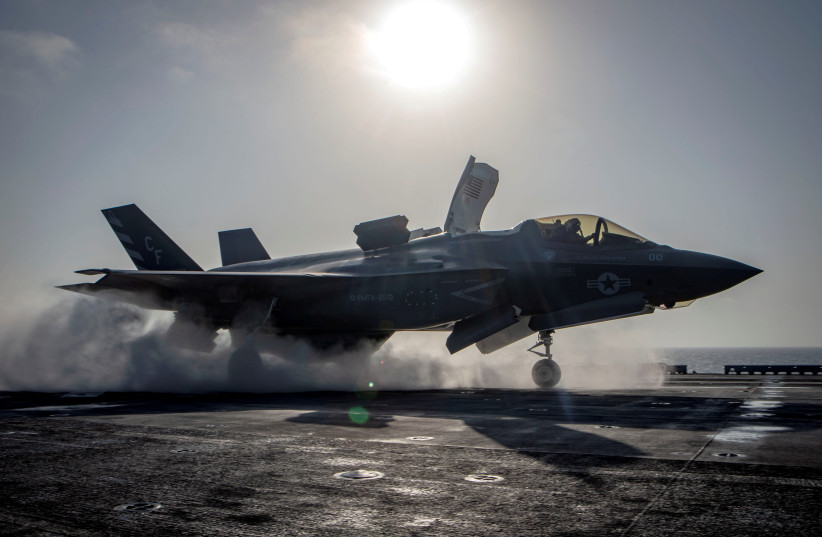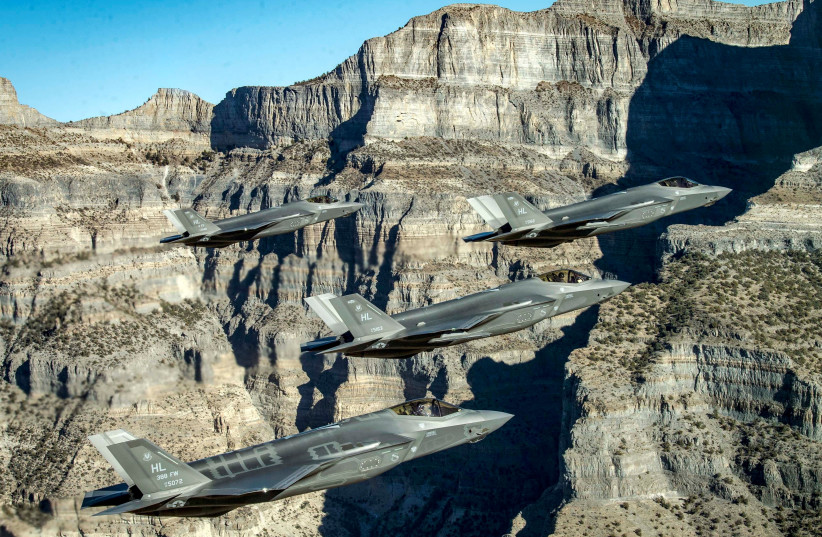There is no shortage of US Air Force assets and other weapons within the CENTCOM area. However, the decision to keep releasing details on these deployments is clear messaging to Iran and Russia.
SETH J. FRANTZMANJULY 18, 2023 11:11

Days after US officials said that the US would send F-16s to the region, and the guided-missile destroyer USS Thomas Hudner, more reports emerged on Tuesday of the US sending warplanes to the region. This appears to be an increasing crescendo of messaging designed to deter Iran and Russia.
It’s worth recalling that the US has already sent F-22s to the region and A-10s and has done flights with B-52s. There is no shortage of US Air Force assets and other weapons within the CENTCOM area of responsibility. However, the decision to keep releasing details on these deployments is clear messaging to Iran and Russia.
How Russia and Iran are harassing, threatening US forces in the Middle East
Russia has been harassing US forces in Syria. Russia is focused on Ukraine but Moscow also recently torpedoed a UN deal that enables aid from Turkey into Syria. This could destabilize northwest Syria where Turkey operates. On the other side of the coin, Russia wants the US to feel less secure in eastern Syria. Iran is also threatening US forces in Iraq and Syria. Iran has also been harassing ships in the Persian Gulf.
Therefore, there are a lot of areas for the US to try to protect. A recent image released by the Department of Defense showed a US soldier in Kuwait practicing counter-drone operations.
What are the latest reports?

On Friday, there were reports that the US would send more F-16s. Over the weekend, another report said that the US was sending a guided-missile destroyer through the Suez Canal. The USS Thomas Hudner was deploying to the region and had arrived in the Middle East on July 14 and is supporting US 5th fleet operations. The goal here is regional maritime security and stability, the US says.
Pro-Iran media has taken note, with Al-Mayadeen reporting on the US sending more naval and air assets to the region.
The recent news says that the US is sending F-35s to the region and that this will help defend US interests and ensure freedom of navigation. Obviously, this is a reference to securing the Persian Gulf and the Gulf of Oman. Iran has in the past targeted ships in this area with mines and also hijacked tankers. Iran has also used drones to target ships.
“Some [of the fighter jets] are en route,” the Pentagon’s deputy press secretary, Sabrina Singh, told reporters. “In light of this continued threat [from Iran] and in coordination with our partners and allies, the [Pentagon] is increasing our presence and ability to monitor the Strait [of Hormuz] and surrounding waters,” Singh said.
The overall question this deployment raises is whether Iran and Russia are deterred. The increase in planes, or at least the public claims that there are more F-16s, and F-35s in the region now, should send a message to Moscow and Tehran. However, it’s not clear if they are getting the message.
The US also has been experimenting with using more unmanned surface vessels in the Gulf. These types of vessels can help provide sensors and surveillance but they can’t usually counter enemy activity with any kind of kinetic or “hard-kill” type of force. This is because they are usually unarmed. Iran likely knows this and Iran knows that it’s impossible for a few fighter planes and ships to patrol everything and protect every ship.
It’s also unclear what the rules of engagement are for the new warplanes the US is sending. Iran has spent decades harassing ships and harassing the US and others, and it has gotten used to the fact that while warning shots may be fired, no one wants a real conflict in the region.
Content retrieved from: https://www.jpost.com/middle-east/article-750471.